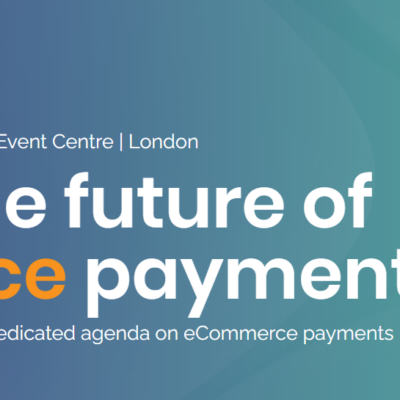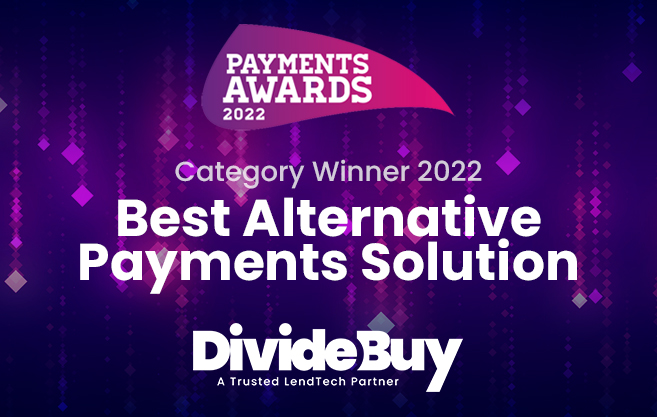Conscious consumerism is on the rise. From carbon calculators to purchase pledges, here’s how to embed sustainability into your customer journey.
57% of UK consumers say that their perception of a brand is influenced by its sustainability practices. It’s more important than ever for online retailers to ensure that sustainable practices run through every area of your business. That includes the checkout process.
In this blog, we’ll look at:
– Why sustainable eCommerce should apply to the customer checkout process
– Ideas and examples for effectively integrating sustainability into your eCommerce checkout
– Is sustainable eCommerce the same as ethical eCommerce?
Why sustainable eCommerce matters for the checkout process
No one can deny the link between a positive eCommerce experience and an increase in repeat orders and returning customers (alongside digital and word-of-mouth advocacy, of course).
By the time a consumer gets to the checkout process, they’ve already made judgments about your brand and website. At this stage, they’re ready to complete their purchase, but abandonment rates are still very high. Statista indicate that eCommerce checkouts aren’t completed in more than 70% of cases in the UK.
Of course, cart abandonments happen for various reasons, including:
– high delivery costs
– long fulfilment times
– complex checkout processes
– favourite payment methods not being offered by the retailer
However, through integrating sustainability into the checkout process, you’re giving consumers a reason to choose you, which might make them think twice about leaving without completing their purchase.
What kind of sustainable practices can be integrated into eCommerce checkouts?
There are many different ways in which sustainability can be incorporated into the checkout process for online retailers. For example…
1. An embedded carbon calculator to show the impact of the order
Helping consumers to see and understand the impact of a purchase on the environment can be a great way to inform and appeal to shoppers who value this insight. There are various tools available to embed a carbon calculator for retailers, to communicate this information as part of your checkout process.
An example of this is fashion retailer allbirds. For every product they sell, they include carbon footprint information, as shown in the example below:
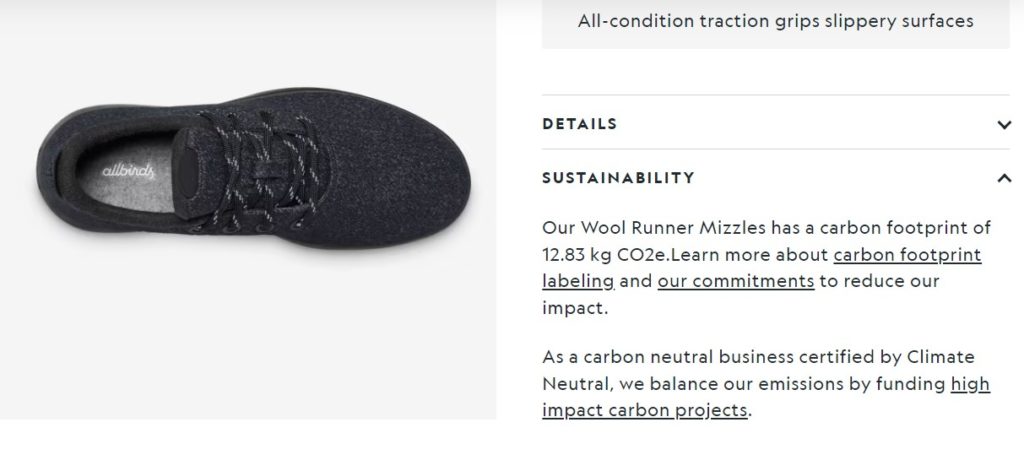
2. Offering green/carbon-neutral shipping/delivery options
Carbon-neutral shipping refers to reducing the carbon footprint of eCommerce deliveries. It can be achieved in a number of different ways.
These include:
– Using electric vehicles for part or all of the delivery process
– Using renewable energy in their distribution and fulfilment premises
– Longer delivery windows to allow more packages to be delivered together, cutting the energy required for shipping
– Carbon-neutral shipping will generally have an associated cost or a delay in delivery, and sometimes both. So rather than increasing all shipping costs and adjusting times to incorporate this, many retailers will provide an option as part of the checkout process.
This allows the consumer to choose whether they want their order to use this method or not. This means that those shoppers who place high value on sustainable shopping can opt for this (but it isn’t compulsory).
3. Providing an option to make a whole order carbon-neutral via ‘offsetting’
Another option to reduce the carbon footprint of not only shipping, but the lifecycle of the product itself, is offsetting. The way this usually works is to partner with an organisation that will provide an offsetting service.
Here’s how it works: the carbon footprint of a product is calculated and the partner arranges for an equivalent offsetting activity. This could mean investing in renewable energy, reforestation and other carbon capture or removal projects, in return.
Again, this option will usually add a cost to the order. Therefore, putting the choice in the hands of the consumer as to whether they want to pay, on top of the product price, is often a good solution for eCommerce brands.
An alternative is for the retailer to automatically pledge to do this on every order.
An example of this is Swyft, the modular furniture brand, and a DivideBuy partner retailer. They promise to carbon offset the sofas and other furniture they sell. They notify website users about this on product pages as well as having more in-depth information elsewhere on their website.
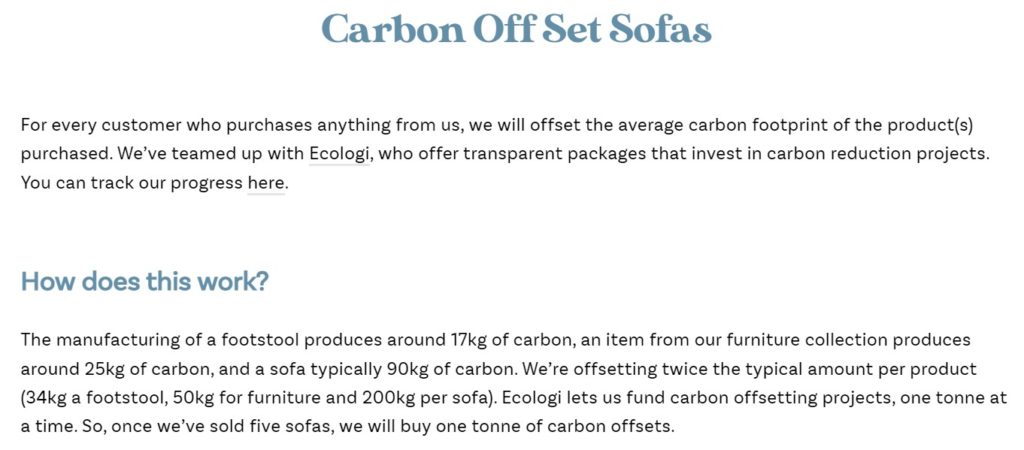
4. Planting trees for every order
While essentially a carbon offsetting activity, communicating to consumers that their order will result in actual trees being planted is a more tangible and definitive way of measuring the environmental impact of their purchase for shoppers.
A great example of this is Bellwoods Lifestyle Store. They make it very clear throughout the entire online buying process that trees are planted as a direct result of orders.
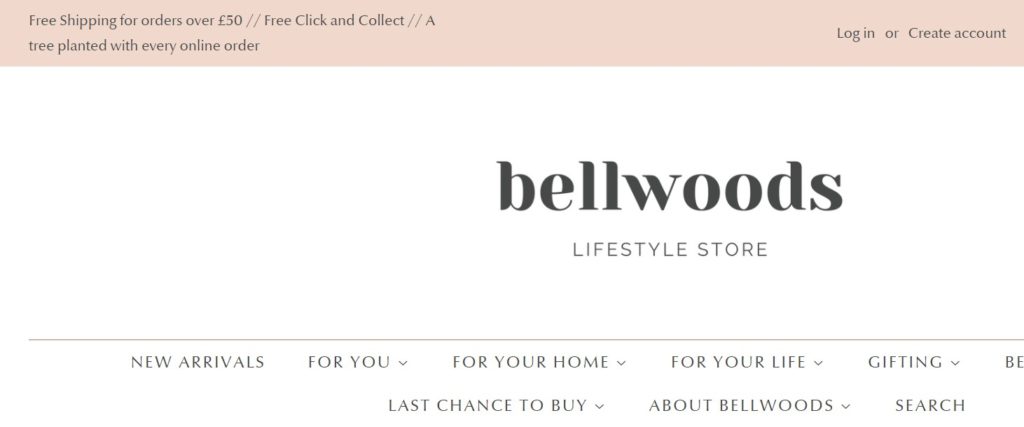
5. Communicating about your recyclable or reusable packaging
Reducing single-use plastic and ensuring that packaging is recyclable or reusable is important to communicate as part of the checkout process. It’s a signal to consumers about your sustainability credentials that could make all the difference in getting a sale over the line.
A good example of this is Abel and Cole. This online organic food and drink retailer is built on ethical foundations. Their entire proposition focuses on less waste and minimising any negative environmental impact on the planet – and they ensure this message is present throughout the buying journey.
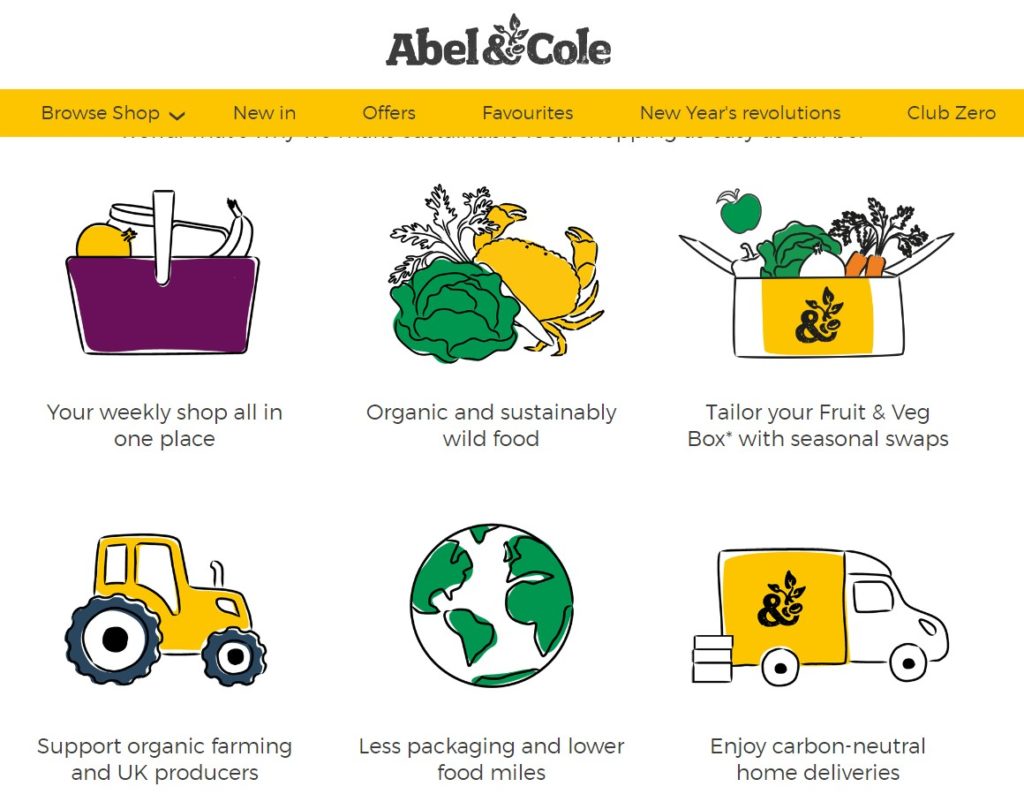
7. Link from the checkout process to where consumers can find out more about your sustainability aims and pledges
There’s value in showing customers that you’re serious about your environmental impact and responsibilities when it comes to sustainability.
Providing a way for them to find out in more detail about what you’re doing on this subject, why and how, can be something that helps them make their purchase decision.
Is sustainable eCommerce the same as ethical eCommerce?
Online retailers being accountable for their actions and the entire lifecycle of whatever it is they sell is undoubtedly important to consumers.
This can relate specifically to the environment, or to ethics in the manufacturing process or other parts of the supply chain. This is known as ethical eCommerce. It also incorporates the ethics of how goods are sold to customers, ensuring aspects such as POS consumer finance are carried out with ethical practice in mind.
Sustainable eCommerce refers to aspects of the business from an environmentally sustainable point of view specifically.
There is certainly some crossover between ethical eCommerce and sustainable eCommerce, and they are highly complementary of each other. Therefore they often go hand in hand with firms that prioritise these types of business practice.
Find out more about ethical and responsible lending for interest-free finance solutions in eCommerce. To see how we can help you boost growth, get in touch with our team.




 Tweet
Tweet
 Facebook
Facebook







